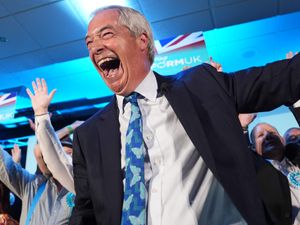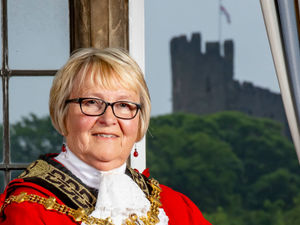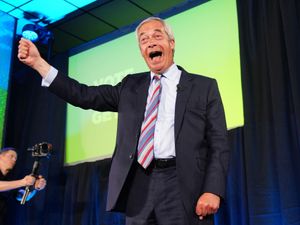Jeremy Corbyn: The turbulent tenure of the unexpected leader
His tenure as leader has seen him outlast two Conservative PMs and transform Labour's identity from a party of pragmatism to one which has lurched towards the hard-left.
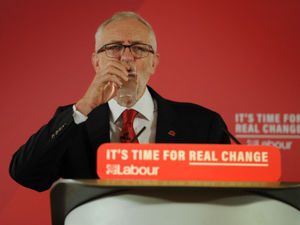
But no-one was perhaps more surprised than Jeremy Corbyn when the serial rebel and stalwart of the party's extremes was thrust into the top job.
A backbencher known for his anti-war – and anti-EU – stances, Mr Corbyn had to be persuaded to run as an outsider candidate for Labour's leadership after a crushing general election defeat in 2015 left the party in need of re-invigoration.
Having sneaked onto the ballot paper thanks to the nominations of non-supporters hoping to broaden the debate, the Islington North MP shocked many of the party's old guard when he was overwhelmingly voted in as leader.
At the time his meteoric rise had been widely unexpected, with more prominent – and moderate – candidates such as Andy Burnham and Yvette Cooper expected to fare better.
See also:
But the tens of thousands of new supporters that joined under new membership rules took him to heart and put him in the hot seat.
His tenure started in the turbulent style which has become the norm for Mr Corbyn – with a shadow cabinet walkout and a no-confidence vote over fears he was electorally incompetent.
He survived the effort to dethrone him with a second leadership election thanks to his overwhelming popularity among grassroots members.
Having already seen the demise of David Cameron with his loss of the EU referendum, Mr Corbyn headed into the 2017 general election with the polls suggesting his prospects were poor.
He did not win – as some of his supporters may have you believe – but he did not suffer the humiliating defeat many had predicted.
Instead, Labour won 40 per cent of the vote, vastly improving on Ed Miliband's share, and stripping Theresa May of her majority.
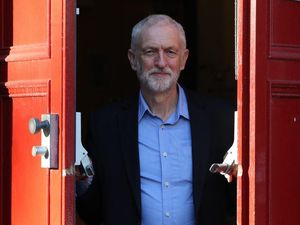
The election saw him win the hearts and minds of many younger voters, encouraging in them a taste for drastic change.
But that so-called 'youth quake' started to peter out soon after, and is now under threat over two key issues.
Firstly, he has come in for lengthy criticism over his position – or lack of a position, many would argue – on Brexit.
Having spent years voting against the EU at every available opportunity, Mr Corbyn entered the 2016 referendum campaign without sharing the enthusiasm for Remain held by many Labour MPs.
Since then Labour's Brexit stance has been widely regarded as ambiguous at best, and an utter shambles at worst.
With the vast majority of the PLP wanting Labour to be a party of Remain, Mr Corbyn has attempted to appeal to all sides by refusing to say whether he would support a Brexit deal that he'd negotiate with the EU if he became PM.
He raised more eyebrows with his recent description of Brexit as "really not that complicated", and for many, his vaguery appears to have left his credentials as a credible leader in tatters.
Another major concern for many who have offered him their support is his failure to eradicate the scourge of anti-Semitism in the Labour ranks.
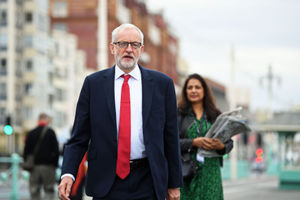
Mr Corbyn has long been a critic of Israel and champions Palestinian statehood.
Under his watch Labour received 673 accusations of anti-Semitism by Labour members from April 2018 and January 2019, while it is currently under investigation over the issue by the equalities watchdog.
A number of his MPs have quit over his handling of the issue. They include Luciana Berger, who claimed Labour had become "institutionally anti-Semitic" and Dudley North MP Ian Austin, who said Mr Crobyn had allowed Labour to be poisoned by extremism.
Whether the 70-year-old will outlast a third Tory leader is likely to depend on the December 12 election.
He hopes to win voters over with his vision for radical change to halt the climate crisis, reinvigorate the welfare state and workers rights, and renationalise rail and utilities.
But he must also convince the public to support his plan to get a new Brexit deal from Brussels and hold another referendum on EU membership within six months.
Failure to do so could well lead to electoral disaster, a point at which even his biggest acolytes may concede it is time for a change at the top.
It would be the end of the dream for Mr Corbyn, but at least he would get to spend more time on his treasured allotment and watching his beloved Arsenal.


